
Do You Understand the Working Principle of Membrane Switches?
Do You Understand the Working Principle of Membrane Switches?
What is a membrane switch?
The membrane switch mainly integrates button functions, appearance display, and instrument panel to form a precise electronic component control system. With its rigorous structural design, beautiful appearance, good sealing performance and excellent durability (such as moisture-proof, long life), membrane switches have been widely used in electronic communication equipment, electronic measuring instruments, industrial control, medical equipment, automobile industry, Smart toys, home appliances and other fields.

What are the types of membrane switches?
Membrane switches can be subdivided into many types according to their design structures, including flat touch membrane switches, convex hull button membrane switches, LED backlight membrane switches, waterproof membrane switches and other types of membrane switches.
Working principle of membrane switch
During operation, when the user presses the membrane switch button, the internal metal dome or the contact of the upper circuit will deform downward and contact the contact of the lower circuit to form a closed circuit. After the finger is released, the dome or upper circuit contact returns to its original state, and the circuit is disconnected, thereby sending a trigger signal to the motherboard PCB. It is worth noting that due to the different structures of membrane switches, their internal material levels are also different. Usually when performing structural disassembly analysis of defective products, a layer-by-layer analysis method will be followed from bottom to top, but this does not prevent We detail the assembly sequence from bottom to top.
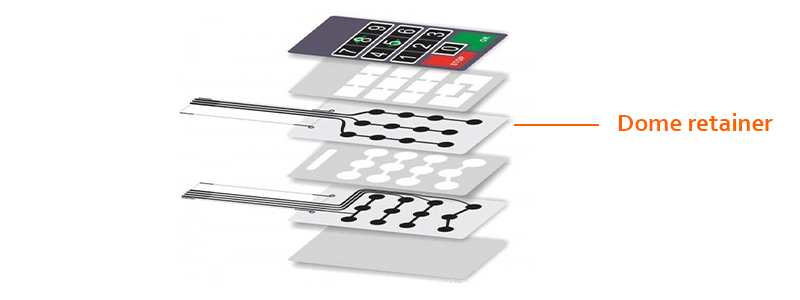
Membrane switches have different material levels due to different structures. Generally, when analyzing the structure of defective products, we dismantle them layer by layer from the surface to the bottom. However, for the convenience of description, it is customary to proceed from the bottom to the top in the order of assembly. Layer description.
What are the characteristics of membrane switches?
1. Compact and lightweight: The membrane switch has a compact appearance and is usually measured in grams. This lightweight feature makes it easy to carry and install, adapting to various compact space requirements.
2. Personalized design: Use modern advanced screen printing technology to design the panel pattern based on customer needs. Film hanging can present rich and colorful patterns to meet different aesthetic and personalized needs.
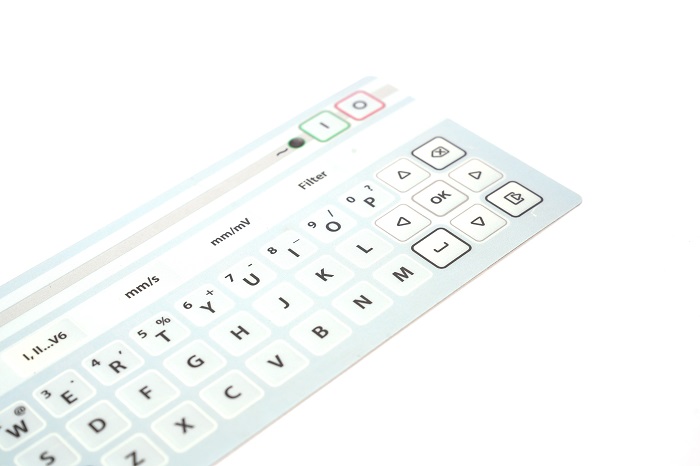
3. Excellent sealing: Special packaging technology gives the membrane switch multiple protective functions such as waterproof, oil-proof, dust-proof, and anti-static interference, ensuring the stable operation of the membrane switch in complex environments.
4. Excellent conductivity: The circuit of the membrane switch can be printed with carbon paste, silver paste, copper and platinum and other materials. The conductive layer is flexible and can be folded at will; the resistance value can be accurately adjusted according to actual needs. What is even more noteworthy is that membrane switches made with a unique process can even withstand high-voltage impacts of up to hundreds of thousands of volts without damaging their functions.
5. Long service life: The reason why the membrane switch is durable is mainly due to the good insulation, heat resistance, bending resistance and high resilience of the materials used. The silk screen pattern is printed on the back, which effectively protects the pattern from wear and tear. Therefore, high-quality membrane switches are usually guaranteed to have a service life of more than three years, or even longer.
Membrane switches have so many advantages, but will their costs be very high? Don’t worry, the price of membrane switches is relatively favorable. If your products require mass production, it will be very cost-effective. This gives membrane switches a great competitive advantage in the key switch industry. At the same time, with its comprehensive functional advantages and wide range of applications, membrane switches have become an indispensable part in the application of electronic equipment. If you want to ask more questions about membrane switch products, you can send us an email: sales@best-membraneswitch.com
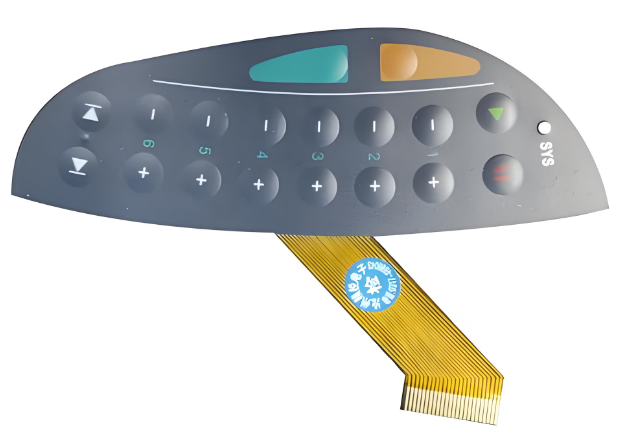
What Is a Graphic Overlay?
What Is a Graphic Overlay? A graphic overlay is the visible top layer of a device or equipment interface, commonly found in membrane switches and control panels. It acts as the user-facing element, conveying information and guiding users through visual cues like text, symbols, and colors. Made from durable materials, graphic overlays are both decorative ...
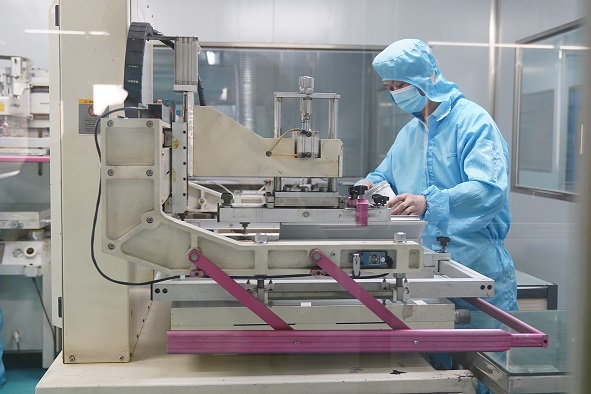
What Basic Materials Needed in Silkscreen Printing for Membrane Switches?
Silkscreen printing is one of the most common methods used in producing high-quality membrane switches. Whether it’s for industrial, medical, or consumer electronics, the clarity and durability of silkscreen printing make it a go-to choice. But what are the materials needed for this process? This article explores the essential components, methods, and considerations, focusing on ...
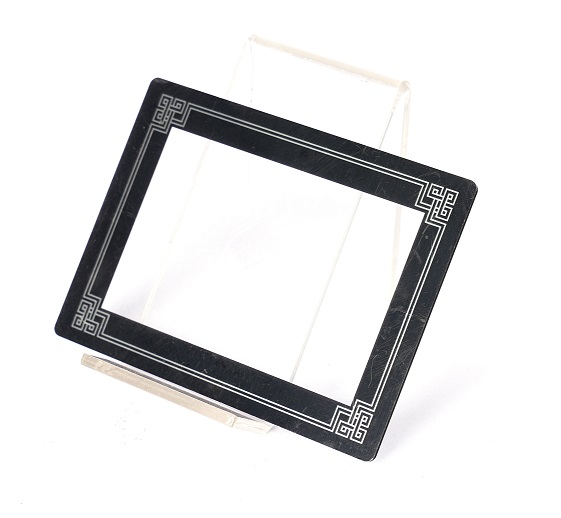
Should You Heat Up Acrylic Sheet to Cut it?
Acrylic sheets are widely used across industries for their strength, clarity, and flexibility. Whether you’re working on DIY projects, signage, or industrial applications, cutting acrylic sheets is a common task. A common question that arises is whether heating acrylic is a good option for cutting. Understanding the properties of acrylic and the right cutting techniques ...
Contact us online